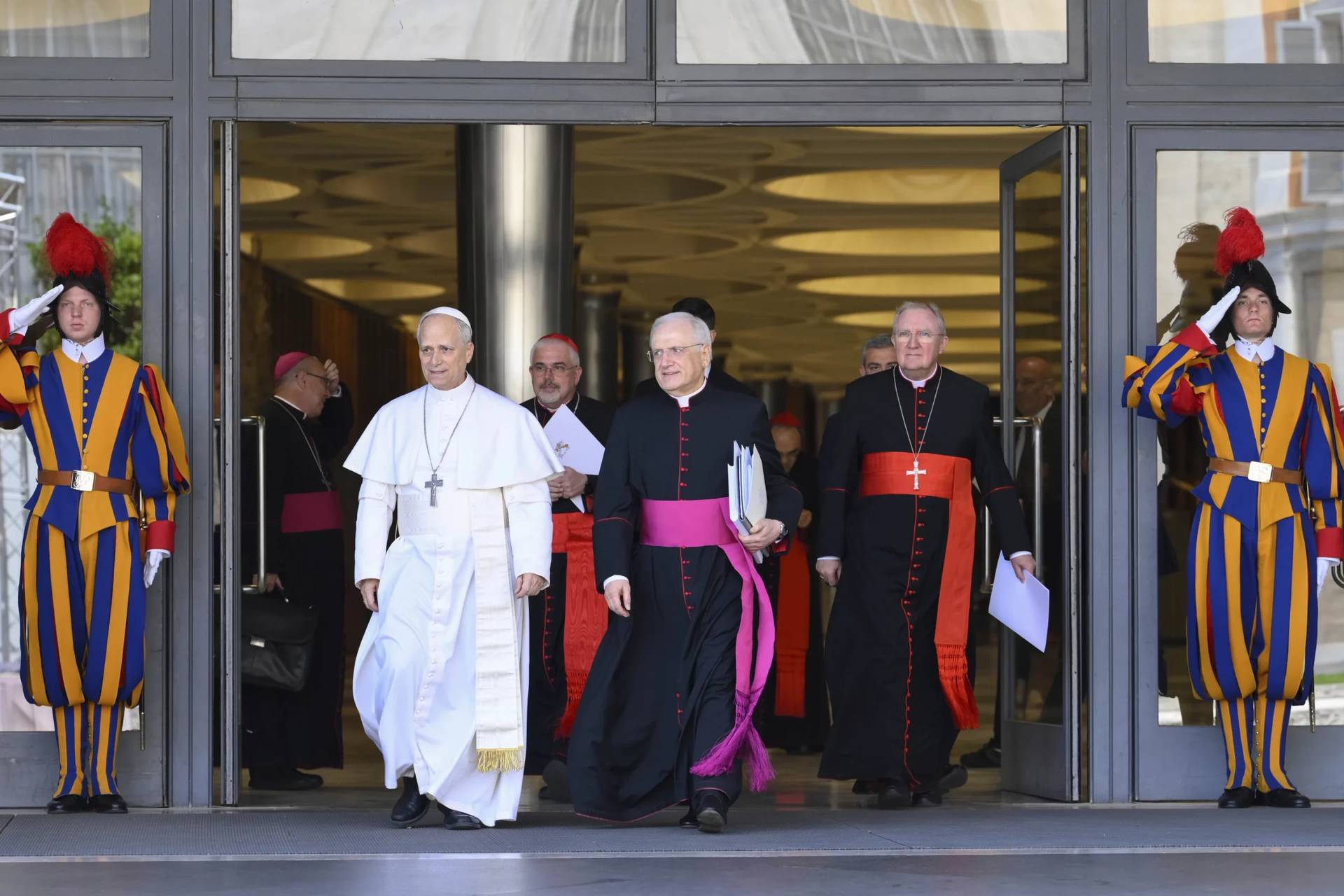LONDON — The Church of England faces one of its periodic meltdowns, when deep-seated disagreements between evangelicals and liberals suddenly rise to the surface.
The presenting issue, as ever, is homosexuality, sparked by two revelations: that a bishop of the Church of England is gay and living with his partner in a ‘celibate’ relationship, and that both facts were known to the Archbishop of Canterbury, Justin Welby, when he consecrated Nicholas Chamberlain in November last year.
After a Sunday newspaper threatened to expose him, Chamberlain, who is the Bishop of Grantham, decided to become the first Church of England bishop to declare he was gay and in a relationship.
Last Friday, he gave an interview to the Guardian newspaper, saying it had not been his decision to come out and that he had no desire to be known as “the gay bishop” but hoped to be “a standard bearer for all people as a gay man.”
He said he had been with his partner for many years. “It is faithful, loving; we are like-minded, we enjoy each other’s company and we share each other’s life.”
The Church of England’s agreed position is that “sexual intercourse, as an expression of faithful intimacy, properly belongs within marriage exclusively.” Its 2012 guidelines state that gay clergy may be in civil partnerships, but not marriage (the UK introduced civil partnerships for same-sex couples in 2004, and legalized same-sex marriage in 2012).
According to a House of Bishops statement in 2013 the same applies to bishops, who can be in civil partnerships “whose relationships are consistent with the teaching of the Church of England.”
Because Chamberlain is in a non-sexual gay relationship, therefore, he is not violating church teaching, yet until now no Church of England bishop has declared himself gay or admitted to being in a gay relationship.
In 2003, the then dean of St Albans, Jeffrey John, withdrew from the selection process to become bishop of Reading in 2003 after an angry reaction from traditionalist Anglicans. Like Chamberlain, he was in a celibate gay relationship.
All those involved in Chamberlain’s appointment – including Welby – were aware of his personal situation, the bishop said. During the appointments process, Chamberlain said, “we explored what it would mean for me as a bishop to be living within those guidelines.”
The revelation will also have implications for the 80m-strong wider Anglican Communion, given the Church of England’s special status within it and its deep rifts over the issue. Trying to hold together the Communion in the face of deep divisions between Anglicans in Africa and North America was a constant pressure on the previous Archbishop of Canterbury, Rowan Williams.
The Church of England was sharply critical of the Episcopal Church in the U.S. for consecrating Gene Robinson, an openly gay man also in a (non-celibate) relationship, Bishop of the Episcopal Diocese of New Hampshire in 2003. That consecration triggered a major crisis in the Communion, and led to the rise of Gafcon, a global Anglican conservative movement calling for fidelity to biblical teaching.
Gafcon’s secretary general, Peter Jensen, has criticized Chamberlain’s appointment, saying it had been made with an element of secrecy and was “a serious cause for concern for biblically orthodox Anglicans around the world.”
Jensen acknowledges that Chamberlain has neither violated the guidelines nor has campaigned publicly for a change in the church’s teaching on sex and marriage, yet says the appointment was “an error” that will exacerbate divisions within the Communion.
Welby, who will join Pope Francis on September 20 for an interreligious gathering in Assisi, said in a statement that he was “fully aware of Bishop Nick’s long-term, committed relationship” and that his appointment had been made on the basis of his skills and calling. “He lives within the bishops’ guidelines and his sexuality is completely irrelevant to his office.”
Welby, who is married, said recently that he was “constantly consumed with horror” at the way the Church has treated gay people, and that he was kept awake at night over the issue.
The revelation has emboldened the Church’s liberal wing that has been long calling for the Church to drop its opposition to same-sex marriage.
Over the weekend, 14 Church of England clergy revealed that they have married their gay partners in defiance of the bishops’ guidelines, and called on the College of Bishops to “move away from the harm and hurt that has so often been done in the name of the Church.”
Six of the signatories to the letter have remained anonymous in order, they claim, to protect their bishops, who they say have been privately supportive of them.
Changing Attitudes, a pressure group seeking a more liberal stance, said there were “at least ten other bishops in the Church who are gay, many of whom are in some kind of relationship,” although there is no way of knowing if that claim is true.
But the revelations will also embolden conservatives at a time when nearly a dozen Church of England parishes in southern England announced they were creating a “shadow synod” to uphold traditional Christian teaching.
In a BBC interview over the weekend, Chamberlain said he had always served God and God’s people “as a gay man,” adding: “My sexuality is part of who I am — I never sought to make it a secret.”















